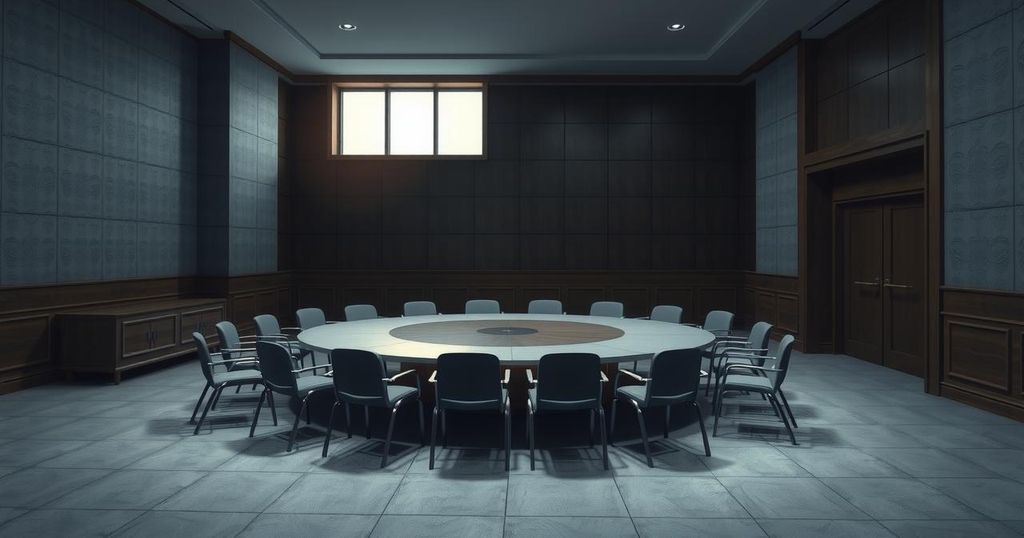Critique of Outgoing Cabinet Led by President Nangolo Mbumba: Performance Evaluation

The outgoing Cabinet under President Nangolo Mbumba has been criticized for poor performance based on evaluations of poverty, service delivery, and the liquidation of Air Namibia. Analysts and opposition politicians rated the government’s efforts in key areas such as youth unemployment and infrastructure as subpar, highlighting the pressing need for improved governance and accountability.
The performance of the outgoing Cabinet led by President Nangolo Mbumba has been deemed below average, as reflected by both analysts and politicians. Major criticisms include rising poverty levels, inadequate service delivery, and the liquidation of Air Namibia, which are considered the primary failures of this administration.
Analysts evaluated the Cabinet’s effectiveness in four crucial areas: addressing youth unemployment, economic strengthening, infrastructure improvement, and service delivery. In his concluding speech to the National Assembly, Mbumba asserted that the Cabinet had made notable decisions to promote economic growth, job creation, and poverty reduction for all Namibians.
Mbumba’s remarks were met with skepticism from critics such as Namibia Economic Freedom Fighters lawmaker Kalimbo Iipumbu. He expressed that the administration will always carry the burden of Air Namibia’s liquidation, which resulted in significant job losses amid an ongoing economic crisis. Iipumbu criticized the government’s decision to merge finance and public enterprise ministries, suggesting more evaluation was necessary prior to implementation.
Furthermore, Iipumbu highlighted a missed opportunity by the Ministry of Agriculture, Water and Land Reform to eliminate the 128-year-old veterinary cordon fence, proposing a 10-year term for governmental leadership to enhance national governance.
The Landless People’s Movement (LPM) assigned the Cabinet a score of 4.25 out of 10, acknowledging the challenges posed by the Covid-19 pandemic. LPM spokesperson Lifalaza Simataa stressed government neglect in the agricultural sector, particularly during drought conditions, and pointed out that numerous initiatives, although underway, have yet to yield economic benefits.
Simataa also criticized the government’s service delivery, pointing out that only 22% of secondary school pupils passed their exams between 2020 and 2022, while less than 30% passed during the Cabinet’s tenure, limiting access to university education.
Political analyst Rui Tyitende raised concerns regarding the Cabinet’s claims of progress amidst widespread poverty and unemployment, questioning Mbumba’s assertions. Tyitende noted that the ruling party’s empty rhetoric has overshadowed genuine attempts at economic emancipation.
Human rights activist Rosa Namises contended that the current administration deserves a score of four out of 10, citing increasing issues such as unemployment, poverty, and violence against women as significant shortcomings. She criticized the government’s ineffectiveness in addressing youth issues, with rising cases of suicide and substance abuse among young people.
Economist Omu Kakujaha-Matundu echoed similar sentiments, assigning a score of four for the Cabinet’s performance on economic strengthening due to persistently high unemployment rates and abysmal infrastructure conditions. He noted the dire situation in housing and healthcare services, emphasizing the government’s failure to tackle youth unemployment effectively, giving it the lowest score of two out of ten.
In summary, the performance of President Nangolo Mbumba’s Cabinet has faced substantial criticism from various political analysts and lawmakers. Key failures, particularly in poverty alleviation, service delivery, and management of national assets, have shaped a bleak assessment of the Cabinet’s impact. The overall sentiment reflects a widespread demand for more effective governance and urgent remedial action in addressing the socio-economic challenges facing Namibia.
Original Source: www.namibian.com.na







